
Choosing the right roofing shingles for your roof can be an overwhelming task as these days, there are a variety of shingle types to choose from on the market.
Besides the style, costs, and durability, homeowners are also concerned about the toxins that might be present in the roofing materials. Thus, it is understandable that one of the questions a homeowner has is whether roofing shingles are toxic.
Are roofing shingles toxic? No, modern day shingles are not toxic. However, if you roof was installed with shingles made before 1989 then it may contain asbestos which is classified as a carcinogen that must be handled as a hazardous material.
However, today homeowners can rest assured that whichever shingles they install, whether it is asphalt, metal, rubber, wood, composite plastic shingles, etc. are not hazardous to their health.

Roofing shingles need to meet a certain standard by the International Building Code to ensure that they are safe to people and the environment.
Of course, this does not mean that shingle materials are safe to digest, but as far as roofing shingles giving off toxic gasses, they are entirely risk-free.
One must also keep in mind that not all shingles are made from the same materials, which means that each one will be on a different level when it comes to health hazards.
For example, let us take asphalt shingles since these shingles are the most affordable and a common choice among homeowners.
The substance, asphalt itself, might seem dangerous to some, which leads to the misconception that asphalt shingles are potentially toxic. Yes, it is true that when the asphalt is burned or heated, it releases toxic fumes, but other than that, this material is pretty inert.
Hot asphalt is sometimes needed in commercial roofing, but most residential roofing systems are installed without the need for hot asphalt applications.
But if your contractor does use hot asphalt on your roof, and you happen to be on the site during that time, the adverse effects, including headaches and nausea, will only last a few days.

If you are concerned about the effect of the sun’s heat on asphalt shingles, then there is no need since the amount of odor that might be released is so small it is rarely bothersome to chemically sensitive people.
Furthermore, roofing materials like:
- metal
- slate
- concrete
- clay shingles
are considered to be the healthiest roofing materials on the market as they produce little or no outgassing.
Even though many roofing materials available today are made with sustainability in mind, the materials and installation methods are not yet 100% eco-friendly.
Nonetheless, once your shingles are installed, you do not need to fear that the roof over your head is toxic to you and your family.
However, suppose you are concerned about exposure to toxins through indirect contact like rainwater harvesting from your roof, then care needs to be taken.
In such a case, it is best to discuss your options with a professional roofing contractor who can suggest the best materials.
Are Roofing Shingles Toxic to Animals?
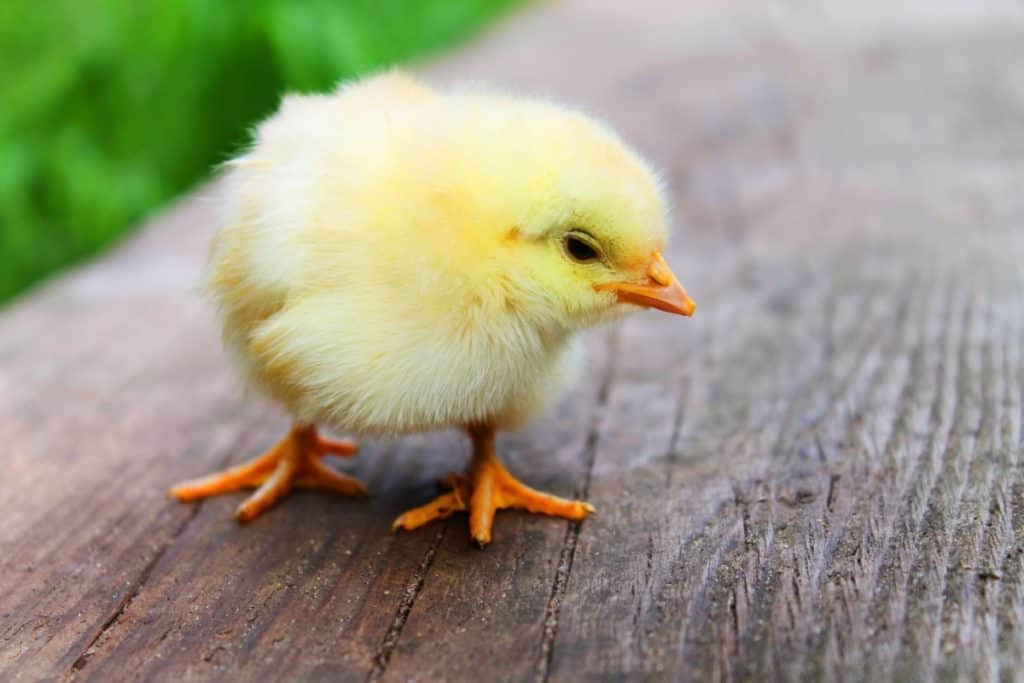
If you have any outdoor pet that uses a shingled home like a dog house or a chicken coop. You may be concerned whether shingles are toxic to your animals.
There is no need to worry that the shingles on the chicken coop will do your chickens harm, nor that your cat is more sensitive to the materials that your roof is made of since roofing shingles today do not give off harmful gasses.
However, just like any other building materials, or non-edible products you might have around your yard, animals should not digest roofing shingles. So if you notice shingle granules or a blown-off roof shingle on your property, make sure to get rid of it before your dog starts nibbling on it.
While your pet might not be in actual great danger if they did chew or lick on a piece of shingle, it would be best to take them to the vet just in case.
Is it harmful to drink water collected from the roof if your roof is made of shingles?
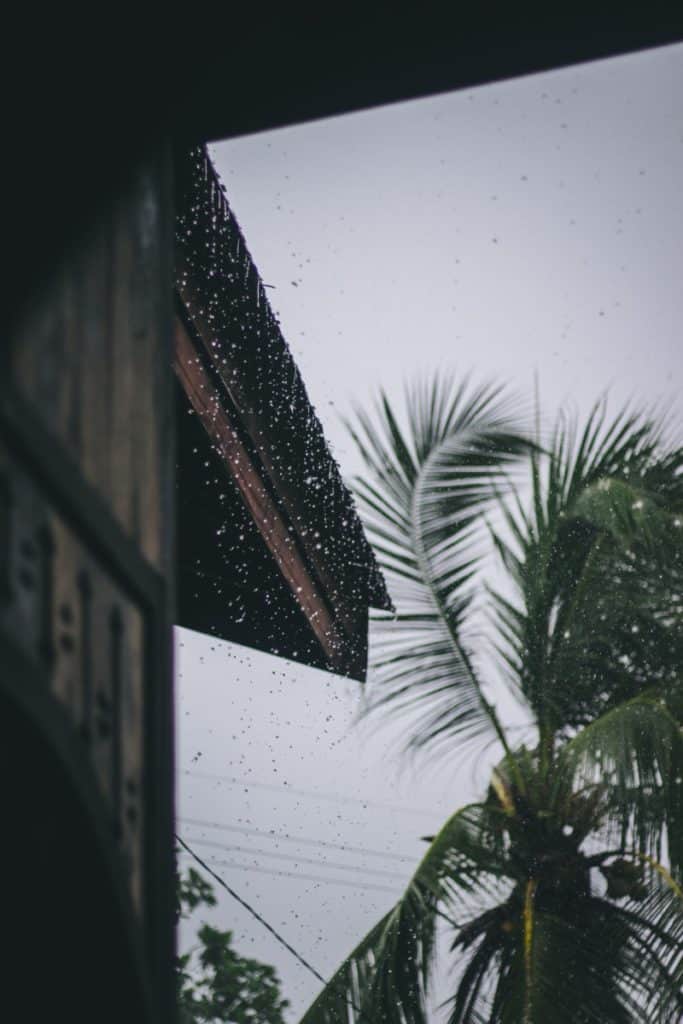
Whether you have asphalt shingle, standing metal seams, slate tiles, or wood shakes, it is always necessary to take precautions when collecting rainwater.
In most cases, rain is considered “grey water,” which is not meant for drinking. This water is typically used for watering plants and other household chores.
Besides possible toxins that can come from the roofing material itself or the paint, other things like debris or bird droppings can be toxic. So, if you intend to consume the water you collect from your roof, it is crucial to filter it and have it tested.
Will the granules from the shingles kill your vegetables or plants if they end up in your garden?
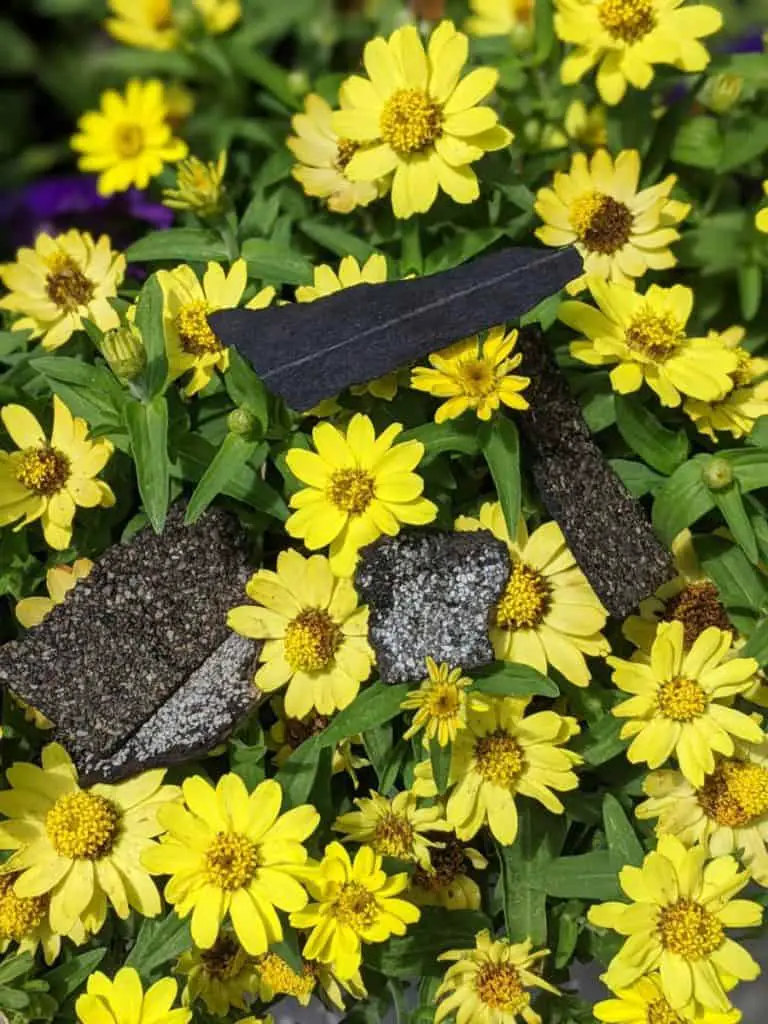
It is not uncommon to come across shingle granules in your garden, especially if your roof is old. Luckily you do not have to worry about your plants or vegetables dying due to this.
The granules made up of gravel and asphalt are organic compounds that will not leach into the soil. Neither are your plants likely to absorb any petroleum compounds from the asphalt, which means they will be free of contamination.
How to protect your home from shingle debris when getting your roof replaced
In general, it is the roofing contractors‘ job to ensure that everything that needs protection on the property is covered to prevent damages.
Therefore, it is best to discuss the means of protection to your property beforehand with the roofing contractor. Nevertheless, one can never be too cautious, and taking some extra steps yourself to prevent damages is a smart move.
The first thing you would want to do is make sure that any loose items around your home like patio furniture are put away.
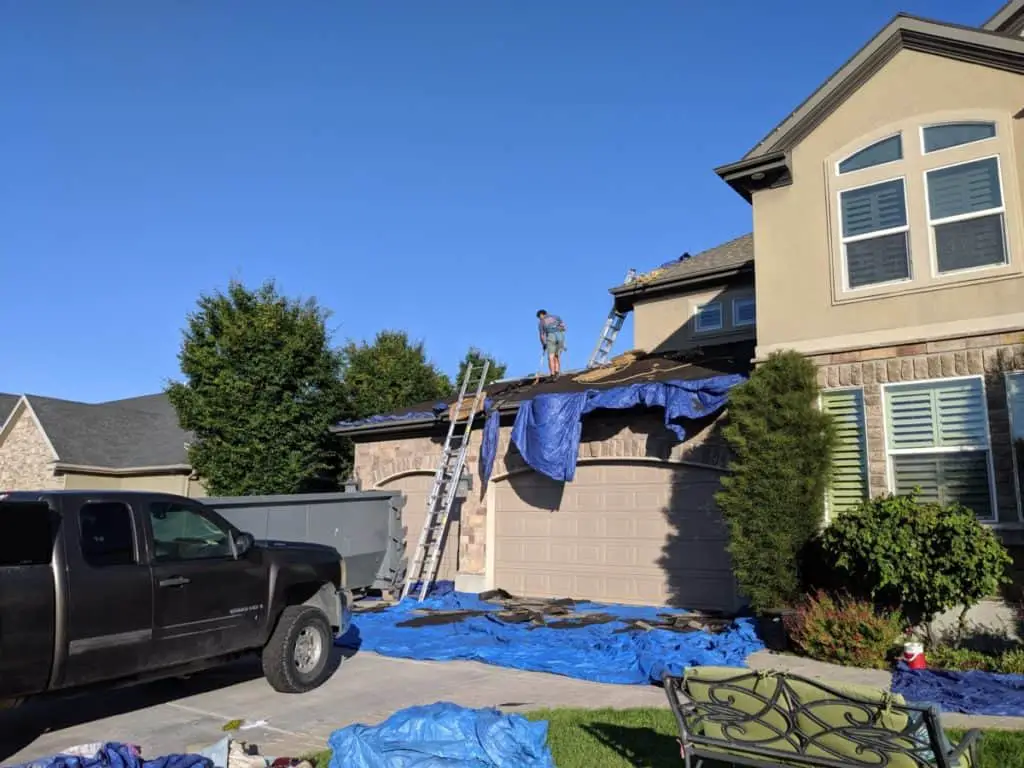
Areas like the pool, the kids play area, vegetable garden, rose bushes, etc., can be covered up with drape tarps and plywood.
You can also use protective plywood sheets on the driveway to prevent tar marks staining the driveway.
I made a more complete guide about 32 things you can check to ensure your home is protected and that you are getting a quality roof replacement. You can read that article here.
Is it hazardous to burn shingles?
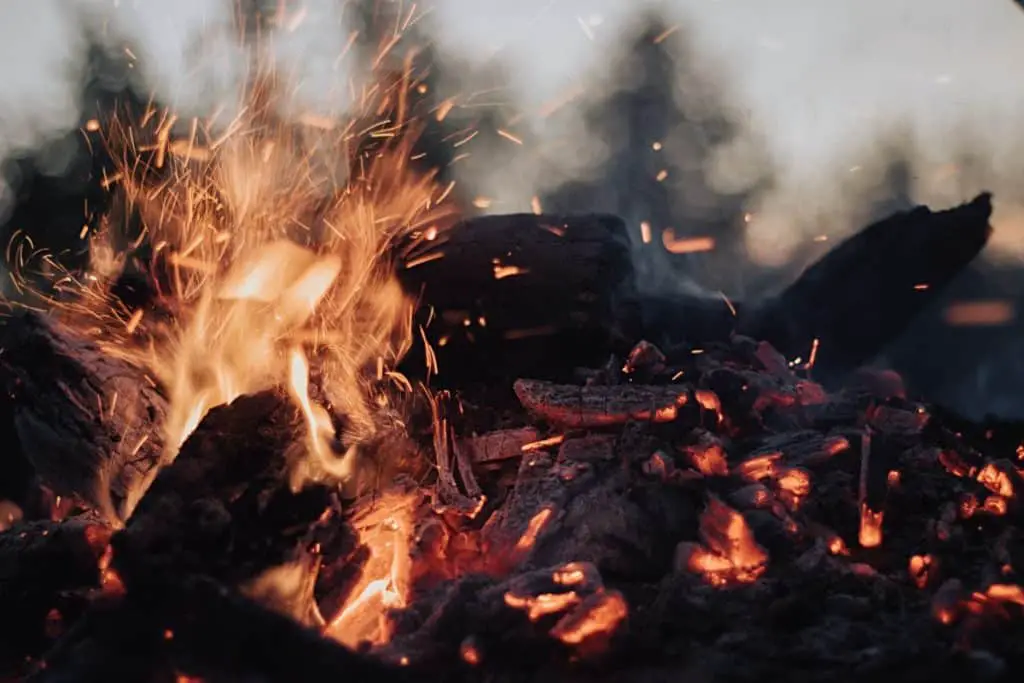
When asphalt shingles are burned, they release a complex blend of contaminants, including carcinogenic polyaromatic hydrocarbons, into the air, which can also leak into the soil and water.
This will, of course, cause pollution to the environment, and that is why it is important to dispose these materials properly. One should never attempt to get rid of shingles by burning them as the gasses that are released are toxic if inhaled.
Related Questions:
1. Can shingles go in the garbage?
If you have a small number of shingles that you want to get rid of, then throwing them in the garbage is fine. However, if you have a big load of shingles to throw away, you can rent a dumpster, or transport them to a landfill or a place where they recycle shingles.
Usually, the roofing contractor is responsible for taking care of the debris when they tear-down an old roof. However, make sure it clearly states in your contract who is responsible for the debris removal after the project is done.
2. Is it safe to burn roof shingles?
It is never a good idea to burn your old shingles. Burning asphalt shingles are illegal as they release toxic chemicals that are harmful to humans and the environment when burnt.
Even if your shingles are made from other materials like wood, it is not safe to burn them as they may have been treated with chemicals that will react negatively to high heat.
3. Do asphalt shingles decompose?
Asphalt shingles are not considered hazardous waste, but unfortunately, they are a non-biodegradable solid waste that takes up a ton of space in landfills.
If you need to get rid of your asphalt shingles and, at the same time, want to keep things sustainable, it is best to take them to an asphalt shingle recycler in your area. Asphalt can be reused in other products like asphalt roads.
If you are interested in learning more environmentally friendly roofing materials, you can check out my guide 17 different types of roofing materials you should know about. In that article it talks about roof gardens, solar shingles, and other green roof options.
Conclusion
A professional roofer should be able to give you all the details on the specific roofing shingles you chose for your home.
From the installation process, the chemicals in the coatings, to the means of disposal, whatever you want to know, make sure to ask your roofer before the project begins so that you do not get any surprises later on.
This is especially important if you intend to harvest water from your roof so that you can install a roof that can provide you with the purest water possible.
The bottom line is that nowadays, shingles are not bad for the environment; neither are they toxic to humans.
Professional roofing contractors will also go out of their way to ensure you and your family are safe during the time of installation and that you are not exposed to any hazardous chemicals or situations.
We are fortunate enough to live in an age where technology is helping us improve every sector of our lives, including construction. Along with environmental awareness, new roofing products and methods are making way to ensure we live more sustainable and toxin-free lives.
By choosing an eco-friendly roof for your home, you are not just investing in something that might pay for itself in the long run, but you are also contributing your part to the environment.
